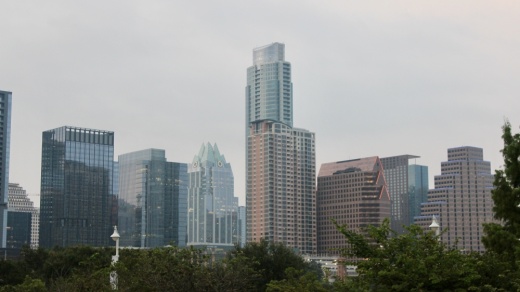Those results came from years of research and feedback from around 2,150 residents of six Central Texas counties, collected in the city's LGBTQIA+ Quality of Life Study released this month. The study was produced through Austin's LGBTQ+ Quality of Life Advisory Commission and consultant Health Management Associates Inc. and overseen by an 11-member research advisory board.
During an Oct. 12 briefing on the research to City Council, HMA project director Charles Robbins told officials that the census of Greater Austin area's LGBT community was the first of its kind given traditional demographic data typically does not track sexual orientation and gender identity.
“This was the first time where we saw a city municipality put out [a request for proposal] to study a marginalized community with centering equity. It was really quite groundbreaking," he said.
Robbins said the results highlight Austin's history of supporting its "vibrant" and extensive LGBTQ community, now estimated at more than 100,000 residents, while also pointing to an array of pressures many residents say they face on a daily basis.
Despite general happiness with the Austin area and its offerings, quality-of-life strains tied to personal safety, economic and housing security, and positive health outcomes are still felt by large swathes of the community, the report found.
Of the hundreds of people surveyed for the study, more than half said they knew someone who experienced a "physical threat or attack" due to their identities, including just over 40% within the past five years. Additionally, 53% of respondents said they experienced harassment or verbal abuse because of their identities. Residents also expressed concern about getting support in those cases with nearly two-thirds of those polled saying they did not seek help after such an incident. Those results stem in part from a distrust of and frustration with law enforcement, Robbins said.
"We had heard that individuals, and again especially transgender people of color, have not had positive relationships with the police department, matter of fact, were very fearful of any interaction with law enforcement. So we heard both qualitatively and quantitatively that that’s a concern," he said.
The study also found a pattern of unmet needs in the community extends into the health care space. While the vast majority of those polled said they were satisfied with their personal physical and emotional health overall, just over 40% said they had not shared their LGBTQ identities with their providers. Many expressed additional concerns related to the availability and competency of local caregivers, notably for youth and transgender residents.
“There’s not a provider that reflects them in the community. We heard that people were going to Houston for health care," Robbins said.
Based on those and other findings, researchers developed several recommendations for the city to consider, such as affordable housing expansion and support for health care specific to LGBTQ residents. Given the rarity of studies targeting the segment of the population, the project team also suggested expanding data collection related to sexual orientation and gender identity for similar reports and progress checks in the future.
A major point highlighted by Robbins was a call to establish an LGBTQ-specific resource center in town, an addition he said many large cities have successfully made in the past. The study also referenced a finding that Austin is "surprisingly" one of the few metropolitan areas without a dedicated LGBTQ center.
“There is a great desire and need for a community center led by community members that provides a safe space for people to convene with their chosen family," Robbins said.
Several council members expressed interest in the concept, which Robbins said could be modeled in various ways with public or private backing in line with the paths taken by other cities. Further action on the new center and the study's other recommendations depends on follow-ups by city officials, LGBTQ commissioners and others in the community; several City Council members expressed support for the initial study and its proposals Oct. 12.
“This is like a crescendo of a lot of efforts and a long time in coming," Mayor Steve Adler said.





